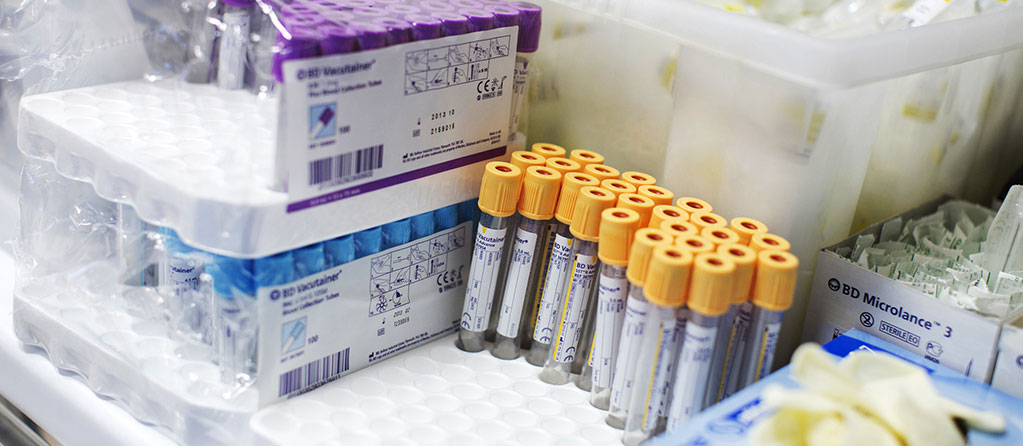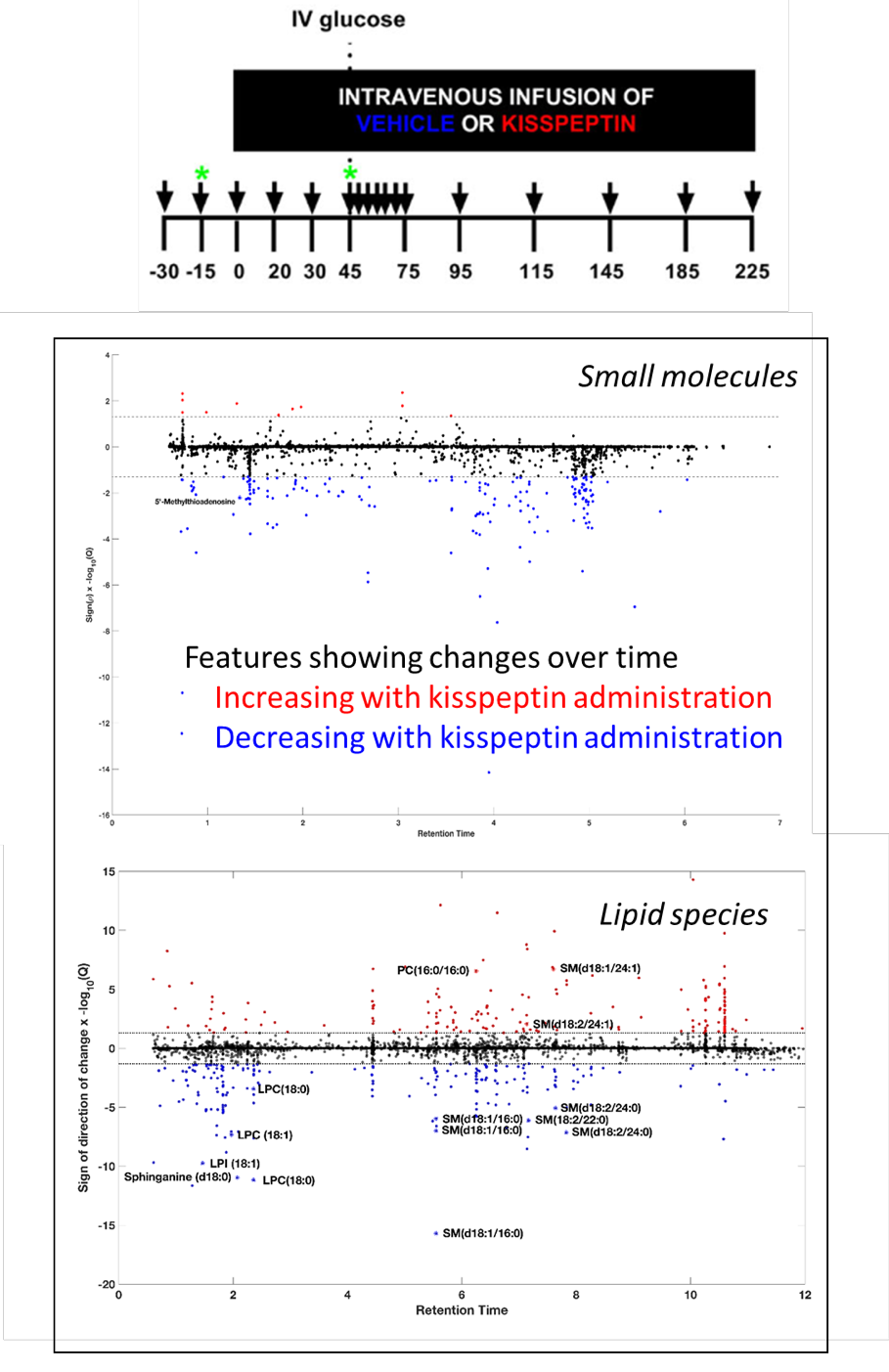
Kisspeptin: linking human reproduction and metabolism
Reproduction and metabolism are inter-dependent but our understanding of the hormones which regulate both these systems is currently limited. Kisspeptin has well-established crucial roles in mammalian reproduction and recent reports in animal models suggest kisspeptin may also be involved in glucose homeostasis. However, the effects of kisspeptin on metabolic parameters in vivo in humans are currently unknown. There is therefore an important clinical need to elucidate the metabolic effects of kisspeptin in humans.
Effects of kisspeptin on β-cell function, metabolites and appetite in humans. This study, employing multiple methodological approaches, demonstrates that administration of the reproductive hormone kisspeptin to humans significantly increases glucose‐stimulated insulin secretion in vivo and in vitro via actions on pancreatic islet cells, with associated alterations in serum metabolites associated with insulin secretion. In addition, kisspeptin administration did not alter gut hormones, appetite or food intake in healthy men.
Kisspeptin alters the pattern of specific serum metabolites
To provide insights into the metabolic effects of kisspeptin, we compared serum samples from 15 volunteers (age: 25.2±1.1 years; BMI: 22.3±0.5 kg m−2) during 30 kisspeptin infusions (1 nnmol kg−1 h−1) and 30 vehicle administration infusions taken at baseline (t=−15 minutes) and when kisspeptin had reached steady state but prior to the glucose load (t=45 minutes), using ultra-performance liquid chromatography-mass spectrometry (UPLC-MS). Linear mixed effect modelling was used to identify patterns of serum metabolites, which changed significantly between baseline and steady state during kisspeptin but not vehicle administration. The profiles of numerous small molecules and lipid species were altered and the assignment of metabolites was performed by matching chromatographic and spectral qualities to reference spectra and authentic reference materials that were commercially available.
We demonstrate for the first time that kisspeptin modulates serum lipids and small molecules in humans. Several of these metabolites include lipid classes (i.e. lysophosphatidylcholines, phosphocholines and sphingomyelins), which have been shown to be associated with insulin secretion. This provides further evidence of kisspeptin’s modulation of human metabolism, which (with further study) may provide important mechanistic data.

Metabolome to Product
Demonstrating the beneficial role for kisspeptin insulin secretion in humans in vivo has important implications for our understanding of the links between reproduction and metabolism, as well as for the ongoing translational development of kisspeptin-based therapies for reproductive and potentially metabolic conditions.
Izzi-Engbeaya C, Comninos AN, Clarke SA, et al. The effects of kisspeptin on β‐cell function, serum metabolites and appetite in humans. Diabetes Obes Metab. 2018 Dec;20(12):2800-2810.
Acknowledgements: Infrastructure support was provided by the National Institute for Health Research (NIHR) Imperial Biomedical Research Centre (BRC)
Return to Case Studies